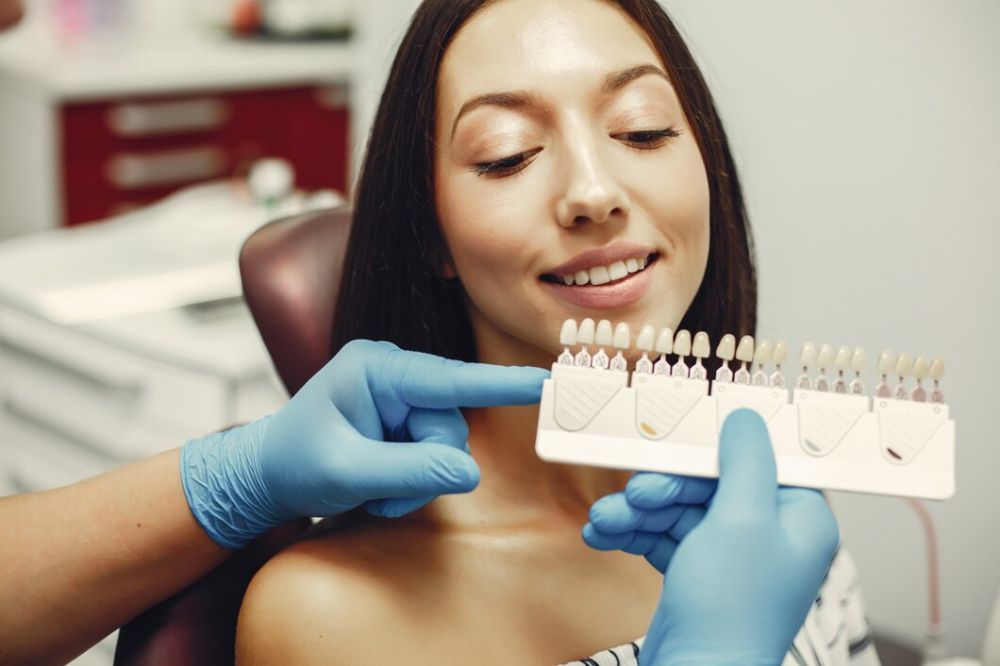Has it ever crossed your mind how long permanent dental crowns are going to stay effective? They are the solution to dental problems and are meant to strengthen your teeth, but their life depends substantially on the products used and the maintenance you carry out. In case dental crowns in Jacksonville have become your option, you ought to be familiar with the factors that influence their longevity and the ways of achieving a long-lasting dental restoration.
What Are Permanent Dental Crowns Made Of?
Permanent crowns are durable caps made to fit on a tooth to restore its shape, strength, and appearance. Crowns can be made from several materials, including porcelain, ceramic, metal alloys, and combinations thereof. Each material has advantages and disadvantages, such as porcelain for natural appearance, and metal crowns provide the strongest durability.
With proper care, most permanent crowns last anywhere from 10 to 15 years or even longer. However, visiting your trusted dentist in Jacksonville consistently for regular check-ups will help to identify small issues before they become more serious problems.
What Factors Affect Crown Longevity?
Crowns don’t always wear the same. Many factors influence how long they can last.
- Oral hygiene practices: Daily brushing and flossing help to keep the crown and surrounding tooth clean.
- Bite forces: Teeth grinding or clenching can increase the speed of wear on your crown.
- Food choices: Hard foods or sticky foods can increase the risk of your crown cracking or loosening.
- Material type: Ceramic may chip more easily than metal crowns, and metal crowns may last longer but may not look as natural.
- Regular dental visits: Routine care may help extend the life of your crown.
What’s the Lifespan of a Permanent Dental Crown?
On average, crowns can last between 10 and 15 years. Some crowns can last 20 years if taken care of. Crowns can be seen as an investment; with diligent care, you can extend their life and avoid future dental appointments.
Will I Ever Have to Replace My Dental Crown?
Yes, a dental crown will need replacing at some point due to the wear and tear that crowns will incur. Here are some signs your crown may need to be looked at.
- Discomfort while biting or chewing
- Visible cracks or chips
- Sore or swollen gums around the crown
- The crown feels loose or shaky
If you are experiencing any of these symptoms, contact dental crown specialists for an evaluation and crown replacement before the problems get worse.
Are Dental Crowns Better Than Fillings for Damaged Teeth?
Both fillings and crowns are used to restore teeth, but they restore teeth differently. A filling repairs a small hole (cavity), while a crown restores, protects, and strengthens a tooth with a more significant defect. In this case, a broken tooth or a tooth that has been weakened after a root canal. In these situations, the crown is typically a better long-term solution.
Daily Dental Care of dental crowns near you:
To properly care for and extend the life of your dental crown, you should take care to do the following:
- Use a toothpaste that contains fluoride to brush your teeth twice daily.
- Floss around the crown area gently so that the gum tissue is not irritated.
- Do not at any time bite on ice or hard candies or eat anything very sticky; it may dislodge your crown.
- If you are a teeth grinder, then put on a nightguard.
Be certain to allow the dentist near you to check you with the necessary professional cleanings and do the regular check-ups yourself.
Is It Time to Invest in Your Smile’s Strength?
If you are interested in the protection of your teeth and the enhancement of your smile with a crown that will last for a long time, and you do not know what to do, then a Phelan & Bell Family Dentistry consultation is definitely the right step to take. Our knowledgeable team will get to work immediately, creating a custom solution specifically for you.
FAQs
Can permanent crowns get cavities?
Definitely, although the crown can’t decay, the tooth that has been covered is still susceptible to caries. If teeth and gums aren’t cleaned well.
Can crowns change color like regular teeth?
Staining is less likely with porcelain crowns than with natural teeth; however, certain lifestyles, such as smoking or drinking coffee over a long period, can lead to the discoloration of the crown.
Does getting a dental crown hurt?
No, the crown procedure is typically painless since it’s done under local anesthesia. You might feel slight sensitivity for a few days afterward.
Can crowns fall out completely?
It’s rare, but crowns can loosen or fall off if the cement weakens. If this happens, see a dental practice quickly to have it re-cemented or replaced.
What are the differences between temporary and permanent crowns?
Temporary crowns are placed as a provisional shield during the period that your custom crown is being manufactured. With due care, a permanent crown is intended to serve for many years.






